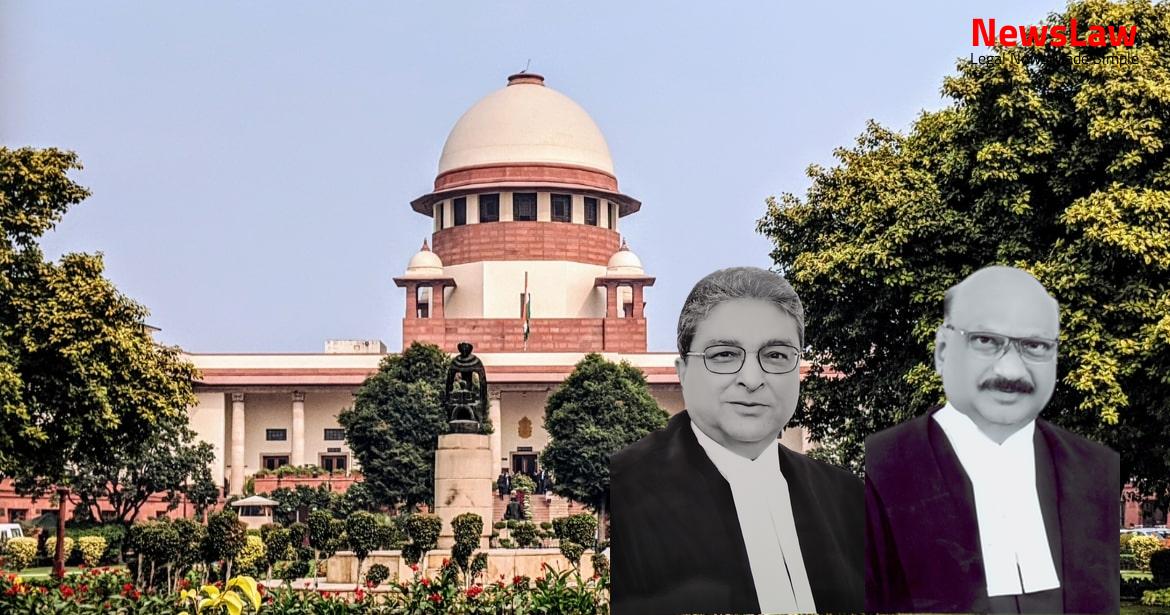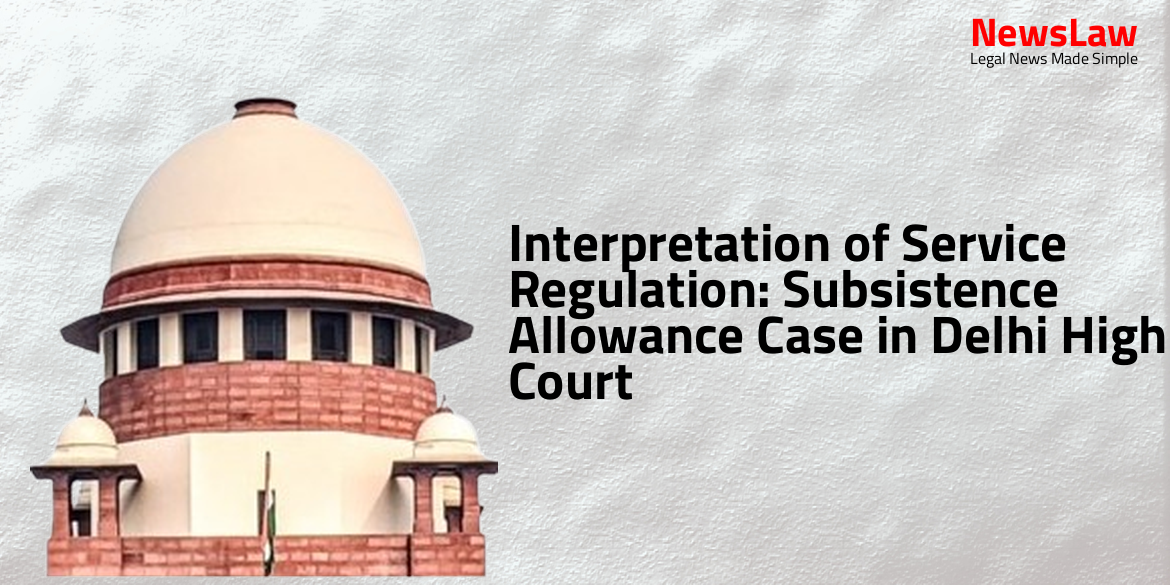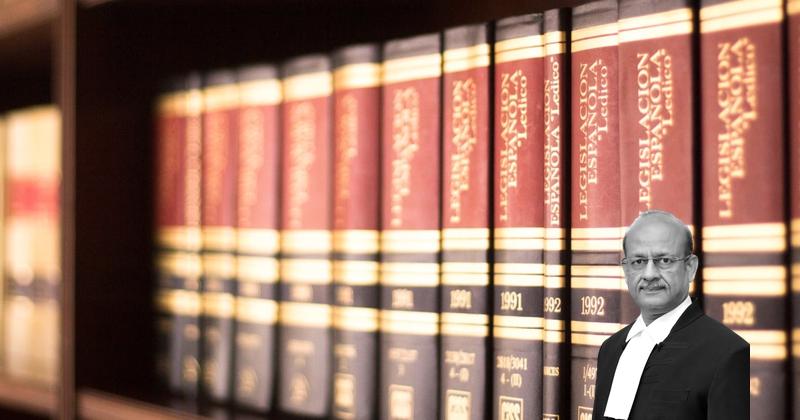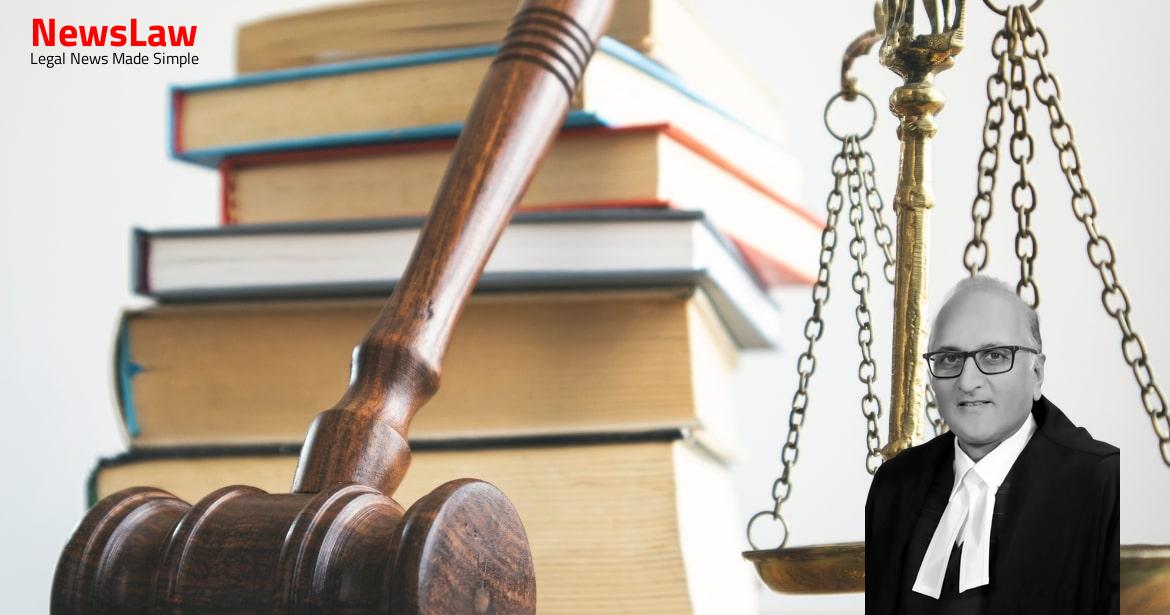Discover the intricacies of rectifying a consent decree in a property dispute as the court explores the complexities of legal analysis. The judgment delves into the nuances of consent decrees and the obligations of parties involved, shedding light on the significance of upholding settlement terms in legal matters.
Facts
- The Respondent brought O.S. No 58395/2016 against the Petitioner on 13.02.2009 for recovering possession of the entire suit property and mesne profits from 1.10.2008.
- The Respondent executed a license agreement in 2000, renewed in 2003 and 2006, for a portion of the suit property.
- Even after the expiry of the 2006 Agreement, Petitioner continued to occupy the property.
- Petitioner argued that its possession was lawful due to Respondent’s agreement to sell the property to Mr. Ajay Gosain before the expiration of the 2006 Agreement.
- Petitioner claimed to have vacated the premises and handed over possession to Mr. Gosain in July 2015.
- High Court reversed Trial Court’s dismissal and decreed possession to the Respondent.
- Mesne profits to be increased by 10% every 12 months according to the judgment.
- Petitioner and Respondent filed cross-appeals against the Trial Court’s judgment on mesne profits.
- High Court’s order decreed possession of the entire suit property to the Respondent.
Also Read: Curbing Frivolous Litigations: Judicial Analysis
Issue
- Trial Court noted that the possession of the suit property has not been handed over to the Respondent despite the High Court’s order.
- Petitioner claimed to have handed over possession to Mr. Gosain in July, 2015.
- Issue of the area of the suit property for which the Petitioner is liable was raised.
Also Read: Interpretation of Insurance Policy Provisions in Liability Determination
Arguments
- Shri Mukul Rohatgi, learned senior counsel for the Petitioner, contends that the High Court should have recorded a 10% increase in mesne profits every alternate year in the consent decree.
- The reference to a 10% increase ‘after every 12 months’ in the first impugned judgment is considered a typographical error by the Petitioner’s counsel.
- The Petitioner argues that a 10% increase every 24 months aligns better with the terms of the license agreements.
- Consent decrees are meant to create estoppels by judgment and put an end to further litigation between the parties.
- Shri Basava Prabhu S. Patil argues for an interpretation of the observations in the judgment to mean an increase of 10% in mesne profits every year.
- The learned Single Judge’s statement on increasing mesne profits by 10% every 12 months is highlighted.
- There is confusion and inconsistency due to the gap of every alternate year in the example given by the learned Single Judge.
Also Read: Duty of Care in Bank Locker Operations
Analysis
- Court is slow to unilaterally interfere in, modify, substitute or modulate the terms of a consent decree without the revised consent of all parties
- Consent decree can be disregarded if compromised by fraud, misrepresentation, or mistake
- Inherent powers of the Court allow rectification of consent decree with clerical or arithmetical errors
- Must consider the overall position of law in answering the petitions
- High Court judgments recorded terms of compromise and upheld validity of consent decree
- Exercise inherent power cautiously, only for exceptional or glaring errors on record
- The Petitioner’s challenge to the judgment dated 12.11.2014 before the Supreme Court has been dismissed, and the view has attained finality.
- The Petitioner’s claim of possessing only a 2,200 sq.ft. portion of the suit property was rejected, as settled by the High Court’s judgment decreeing possession for the entire 5,472 sq. ft. area.
- Despite the possession claim, the High Court had already decreed possession of the entire suit property in favor of the Respondent in 2014.
- The 2006 Agreement licensed the total area of 5,472 sq. ft. to the Petitioner without delimiting it to a specific portion.
- The said Agreement’s terms and inconsistency in the consent decree suggest an error in the decree, indicating illegal possession by the Petitioner.
- The High Court was correct in upholding the terms of the consent decree, directing the Petitioner to hand over possession of the entire suit property to the Respondent.
- The ongoing dispute regarding Mr. Gosain’s claim does not affect the Respondent’s right to possess the suit property.
- Efforts by the Petitioner to delay or circumvent possession delivery are deemed unnecessary and wasteful of the court’s time.
- The recording of a 10% increase after every 12 months in the consent decree was an inadvertent error, which has been rectified.
- The judgment and final decree passed by the Trial Court also awarded a 10% increase only on each alternative 15 years.
- The original terms of the license agreement between the parties included a 10% increase in license fee once every 30 months/2.5 years.
- The learned Single Judge’s order dated 14.02.2019 caused confusion.
- Considering the background and probabilities, the benefit of doubt is given to the Petitioner.
- The intention of the compromise between the parties was for a 10% increase in mesne profits every alternate year.
Decision
- The Registry is directed to release the arrears of mesne profits deposited by the Petitioner to the Respondent.
- The Petitioner must hand over possession of the suit property to the Respondent within eight weeks.
- The Petitioner is directed to pay all arrears with a 10% increase in mesne profits every alternate year from 2009 until the date of possession handover.
- The Petitioner must pay costs of Rs. 1 lakh to the Respondent.
- The second impugned judgment dated 25.07.2019 is overturned, modifying the consent decree recorded by the learned Single Judge’s judgment dated 14.02.2019.
- Displeasure is expressed at the Petitioner’s attempts to circumvent complying with the High Court’s judgment and the repeated failure to hand over possession to the Respondent since July 2015.
Case Title: COMPACK ENTERPRISES INDIA (P) LIMITED Vs. BEANT SINGH (2021 INSC 97)
Case Number: SLP(C) No.-002224-002225 / 2021



